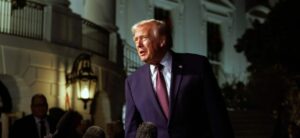
Recent discussions between the United States and Russia may pave the way for ExxonMobil’s re-entry into the Sakhalin 1 oil project, according to Russian Deputy Foreign Minister Sergey Ryabkov. These talks highlight ongoing economic cooperation efforts, despite the geopolitical tensions that have characterized U.S.-Russia relations in recent years.
Ryabkov stated on Wednesday that the Sakhalin 1 project is a primary example of the discussions currently underway. He mentioned that Kirill Dmitriev, President Vladimir Putin‘s special envoy for investment and economic cooperation, is actively engaged in these talks with U.S. officials. “We are ready to deepen these discussions and are open specifically to practical cooperation,” Ryabkov said, indicating a willingness to explore various avenues of collaboration.
ExxonMobil exited the Sakhalin 1 project following the Russian invasion of Ukraine in February 2022, which prompted a mass withdrawal of foreign oil companies from Russia. The project, located on the island of Sakhalin in the Russian Far East, was previously a significant venture for Exxon, which held a 30% stake in it. In response to the changing geopolitical landscape, Putin in 2022 signed a decree transferring full ownership of the project to Russian entities, effectively barring foreign companies from participation.
As diplomatic efforts continue, reports have emerged that Exxon executives engaged in secret discussions with Rosneft, Russia’s state-controlled oil company, earlier this year. These talks have raised speculation about the potential for Exxon’s return to Sakhalin 1, especially in light of the upcoming Trump-Putin meeting scheduled for mid-August. The discussions regarding energy agreements have been framed as potential incentives for Putin to move towards resolving the conflict in Ukraine, which could lead to an easing of sanctions on Russia by the United States.
Despite the high-level discussions, the outcome remains uncertain. Following the Trump-Putin summit, there has been no significant progress towards peace, and President Donald Trump has expressed frustration with Putin’s actions. The complexities of international relations, particularly regarding energy dependencies and geopolitical strategies, continue to influence the trajectory of these negotiations.
As the situation develops, the implications for the global oil market and the energy sector remain critical. The Sakhalin 1 project, once a cornerstone of Exxon’s portfolio in Russia, represents not only a significant financial opportunity but also a focal point in the broader context of U.S.-Russia relations. The future of this venture will depend on both diplomatic developments and the evolving energy landscape in a post-sanctions environment.







